
- Sails & Canvas
- Hull & Structure
- Maintenance
- Sailing Stories
- Sailing Tips
- Boat Reviews
- Book Reviews
- Boats for Sale
- Post a Boat for Sale
- The Dogwatch
- Subscriptions
- Back Issues
- Article Collections
- Free for Sailors
Select Page

Boat Insurance 101
Posted by Christine Myers | Sailing , Sailing Tips
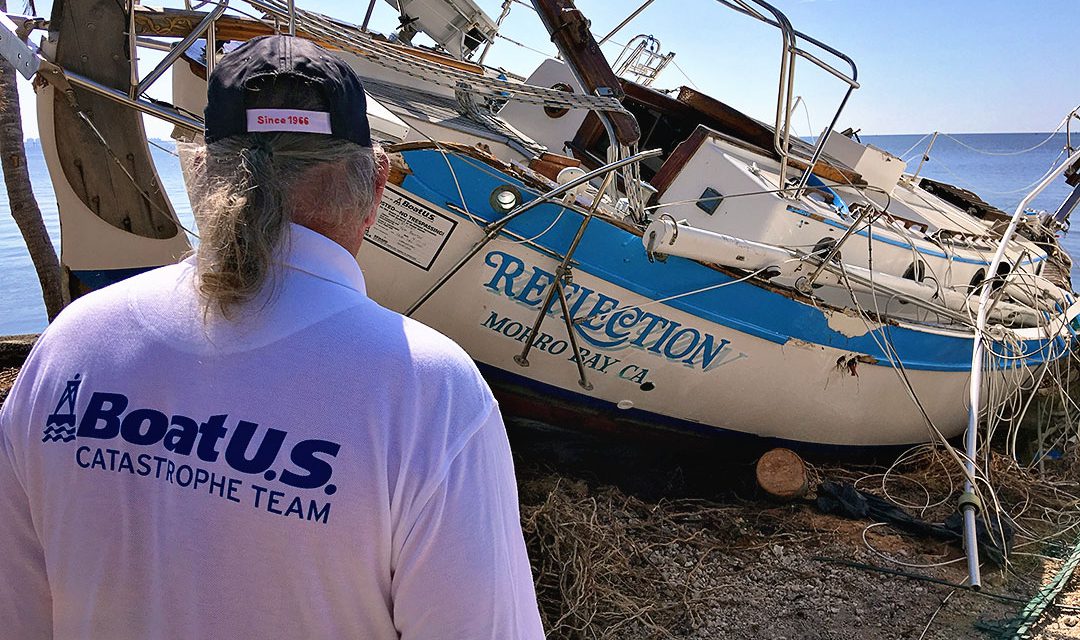
Navigating turbulent insurance waters calls for planning, preparation, and patience.
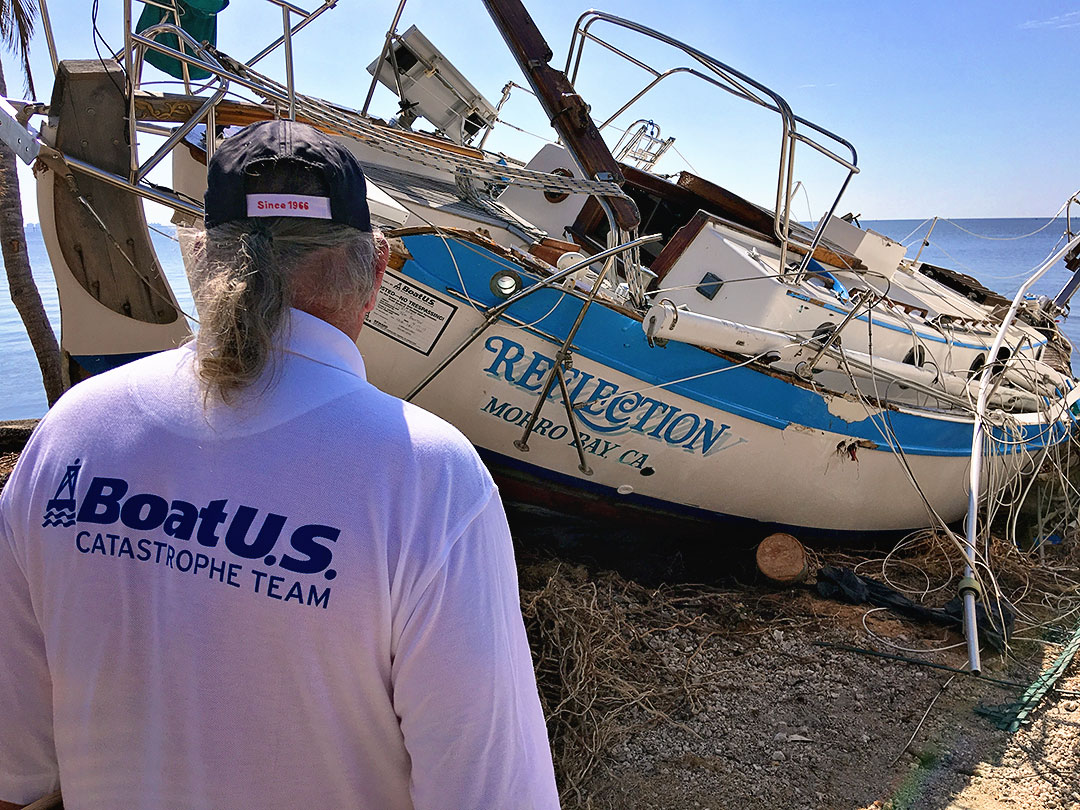
Y ou’ve never made a claim, yet your insurance carrier just dropped you. You’ve just received an eye-popping renewal quote. Your premium went up 50% for less coverage, and now the company wants a survey after only two years. You’ve spent time and treasure upgrading and refitting a solid, older boat, and you’re struggling to find insurance for it because it’s past a certain age.
Don’t take it personally. Whether they’re new to the water or long-term boat owners, everybody on the dock seems worried about insurance. How much do you need? Where can you find it? Are you paying a fair price?
The insurance industry has clamped down on marine insurance. More extreme and frequent storms have increased catastrophic events; new, inexperienced boaters who hit the water during the pandemic increased accidents and claims. Number crunchers came to the conclusion that insuring older boats was a money-losing proposition. Boat owners—especially those with vessels over 40 years old—are feeling the effects.
The great insurance reckoning hit sailors like an accidental jibe, leaving us to make peace with a grim reality: Insurance is hard to find and harder to keep. So, where do we turn to adequately and properly insure our boats?
Call the Pros
We may naturally want to do everything–or as much as we can–ourselves, but collecting insurance quotes for an older boat is no DIY project.
In fact, filling out forms on websites to compare quotes can undermine your efforts; only a handful of companies insure older boats, and a flurry of requests for the same boat will clog the system and annoy underwriters. Without knowing what underwriters are looking for, your answers might trigger automatic rejection, and once a carrier turns you down, you won’t get a second look.
In this case, an agent is your best resource. Marine insurance specialists maintain longstanding relationships with dozens of A-rated (or better) underwriters. They know who insures cruising sailboats, lithium-ion batteries, and over-40 boats. They have access to surplus and special lines for boats in unusual circumstances.
Two months before you need coverage is the ideal time to start looking for it, says Susan Waters of Florida-based International Waters Insurance Services. “That gives me time to get more than one quote, answer your questions, negotiate on your behalf with the underwriters, and for you to get a survey or supply more information if required.”
“Generally, insurance for older boats is harder to come by,” says Gary Golden, director of Virginia-based Manifest Marine. “Strength comes from knowing who to go to, how to present it properly.”
Even then, he can’t predict the cost. “Each case is so unique I have to start from scratch with each one,” he says. “Sometimes I’ll get four quotes within $100. Sometimes I’ll get seven and none within $500 of each other.”
As the National Association of Boat Owners (also a good source for finding an agent) states on its website: “The bottom line is not the amount of your policy premium, but how much you will collect at the time of loss.”
Going Shopping?
All quotes–new or renewal–are only good for 60 days. Owners of older boats whose premiums just keep increasing may feel an urge to shop around for a less-costly option. For those who already have insurance, this strategy may not pay off. John Wenz, a surveyor and marine insurance specialist with 35 years’ experience, cautions: “If you’ve been with an insurance company for a long time, you’ll end up paying a lot more with another company.”
Instead, sit down with your agent. Hugo Hanham-Gross of Hanham Insurance Agency recommends emailing your agent two months before renewal with two questions: Is our premium fair? If it’s not competitive, is there anything we can do to lower it?
Boat insurance is customized, based on your choices. Your policy may have coverage you don’t need anymore. Ask about changing depreciation, deductible, insured value, and limits on liability and navigation.
For a new policy, assume from the get-go that you will need a survey. You’ll want a sailing résumé, too. The folks who write policies want to know everything about your boat and you, including previous boats you’ve owned, what sailing or boating education you have or courses you have taken, and whether your driver’s license has been suspended. Until you’ve established a track record with them, the less experienced you are, the more you’ll pay.
“Underwriters typically have hard and fast rules on what age boat they are willing to insure,” Waters says. “They are either willing to cover the 40-old boat, or they are not. The credentials, certificates, training, experience simply affect the premium after the decision is made to offer a quote.”
Hull Insurance
Hull insurance policies have two sections, hull and third-party liability (aka liability). The hull section describes the coverage for your boat and the boat’s value. Policies describe insured value as either agreed hull value or actual cash value. Agreed hull value is determined by market value and condition at the time you apply. Once the agreed number is on paper, it doesn’t fluctuate.
Actual cash value is fuzzier. It refers to market value at the time of loss, more like a car’s Blue Book price. The appeal of actual cash valuation is a lower premium, but it also risks less compensation.
For instance, a boat worth $200,000 today depreciates at 2% each year. After five years, the boat is totaled in an accident. For a boat assigned an agreed hull value of $200,000, the owner would probably collect the entire amount. If the boat had been insured for actual cash value of $200,000, insurance would re-evaluate its condition and the market at the time of loss. They’d likely depreciate it 10% ($20,000) and offer current market value of $180,000.
Most clients prefer agreed hull value, says Golden. “It’s hard to prove your boat’s condition when it’s on the bottom.”
Catastrophes are why you carry hull insurance, what most sailors think of as the repair and replacement kitty. In a total loss, you don’t pay a deductible (usually between 1 and 5% of hull value). As long as the loss is covered, you’ll likely receive your insured hull value.
But in most accidents, boats are not completely destroyed, they’re damaged. The owner files a claim for a partial loss. That’s where it gets complicated. Hull insurance doesn’t replace new for old, and old boats are expensive to repair. Parts are often obsolete. Modern versions of electronics, engines, or even a mast may cost 10 times the original. You’ll be on the hook for your deductible––but how much more will you have to shell out for repairs?
Beth Leonard, former Technical Services Director for BoatU.S., says that depends on each damaged part’s depreciation rate (listed in your policy), anything from 2 to 50% per annum.
“If you hit an underwater rock and demolish your new outboard, you’ll want a new one,” she says. “Depending on your policy provisions, your policy should pay for it, less your deductible. But if you hit that same rock with a 12-year-old outboard, it might not be reasonable to expect the insurance company will buy a brand new one. The claim settlement on a 12-year-old outboard will include your deductible and depreciation to reflect its age.”
If the damage is repairable, there’s a cap on compensation. When repair estimates approach 80% of the policy’s hull value, a partial loss is likely to be declared a constructive total loss, different from a total loss in name only.
Say you’re easing into your slip when a big gust hits. You struggle to keep control of the helm. A guy on the dock rushes to help fend off and gets his hand between the boat and a piling. A second gust hits and pushes your boat harder, crushing his hand.
No matter how much we want to believe we are safe on the water, boats can hurt or kill people. If your boat causes loss of life or disability, you’re wide open to losing everything. Third-party liability insurance, also known as liability or protection and indemnity, protects your assets. It covers bodily injury, property damage, third-party liability, medical payments, uninsured boaters, and salvage/wreck removal.
Coverage should include containment and clean-up expenses resulting from oil pollution or contamination your boat causes. Emergency towing and assistance reimburses you for the costs that you incur when you need emergency assistance for your boat.
For boats without hull coverage, liability is essential (See sidebar “What is Self-Insurance?).
It’s a rare U.S. or foreign marina or yard that will admit you without $300,000 to $500,000 of liability. Their own insurance requires them to keep proof of yours on file.
Words Matter
Each policy is a contract unique to the vessel and its operator containing specific exclusions, restrictions, definitions, and conditions. Every claim is investigated and settled based on specific policy language. All-risk means a risk is covered unless specifically excluded, so pay attention to exclusions.
Your policy won’t cover you outside stated navigation limits, but let’s say one day you sail beyond them. Nothing happens, and you come home safe and sound. Now that you’re back, you’re covered, right?
Maybe not. Were the limits warranted or excluded? Excluded means you aren’t covered when you misbehave. Warranted means you promise never to misbehave; violation can void your policy.
The policy may pay for damage to your outboard but not theft, restrict where and when you can sail, stipulate a minimum age for extra crew, exclude named windstorms, and proscribe many more activities. Perhaps the company says they’ll deduct salvage and wreck removal costs from your check. Are medical payment limits per injured person or per incident? All of these details are worth discussing with your agent.
Policies routinely exclude failures caused by wear and tear, or consequential damage, an issue of concern for older-boat owners and DIY sailors.
Here’s the current Geico/BoatU.S. language, thanks to Kerry Gonzalez, CEO of AMG International. “Coverage will not apply to any loss, damage or expense caused directly or indirectly by: Incomplete, improper or faulty repair, maintenance or renovation.”
This means if damage is caused by a botched repair or a part failure, like a hose clamp or a through-hull, it’s not their problem.
A few years back, Geico/BoatU.S. introduced an exclusion to the consequential damage exclusion, then offered supplemental coverage for it. For an extra fee, it covers a host of failure causes, from rats to corrosion to stray electrical current. Leonard offers an example: “If a worn or corroded electrical wire caused a fire, the damage to your boat from the fire would be covered even though it resulted from wear and tear or corrosion.”
Simply put, Geico/BoatU.S. created an exclusion to offer it as extra coverage. Other companies were forced to follow suit.
Language matters, and insurance-ese can be confusing. Once you have a policy or quote in hand, read the fine print–preferably before you sign–and ask your agent questions.

About The Author

Christine Myers
Christine Myers cruised more than 65,000 miles on two Amel SuperMaramu 2000s, first while raising three kids aboard Delos, then as captain of Hanalei. She blogs about adventures at sea at bychristinemyers.com. The author is not an attorney or marine insurance specialist. This article is meant to inform, not advise.
Related Posts

Winter Agitation
July 25, 2019

Lessons from a Rigging Failure
September 1, 2017
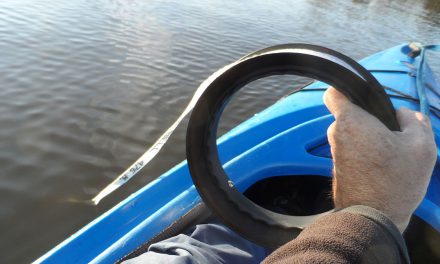
Yo! A Better Small-Boat Anchor-Rode Solution
December 15, 2020
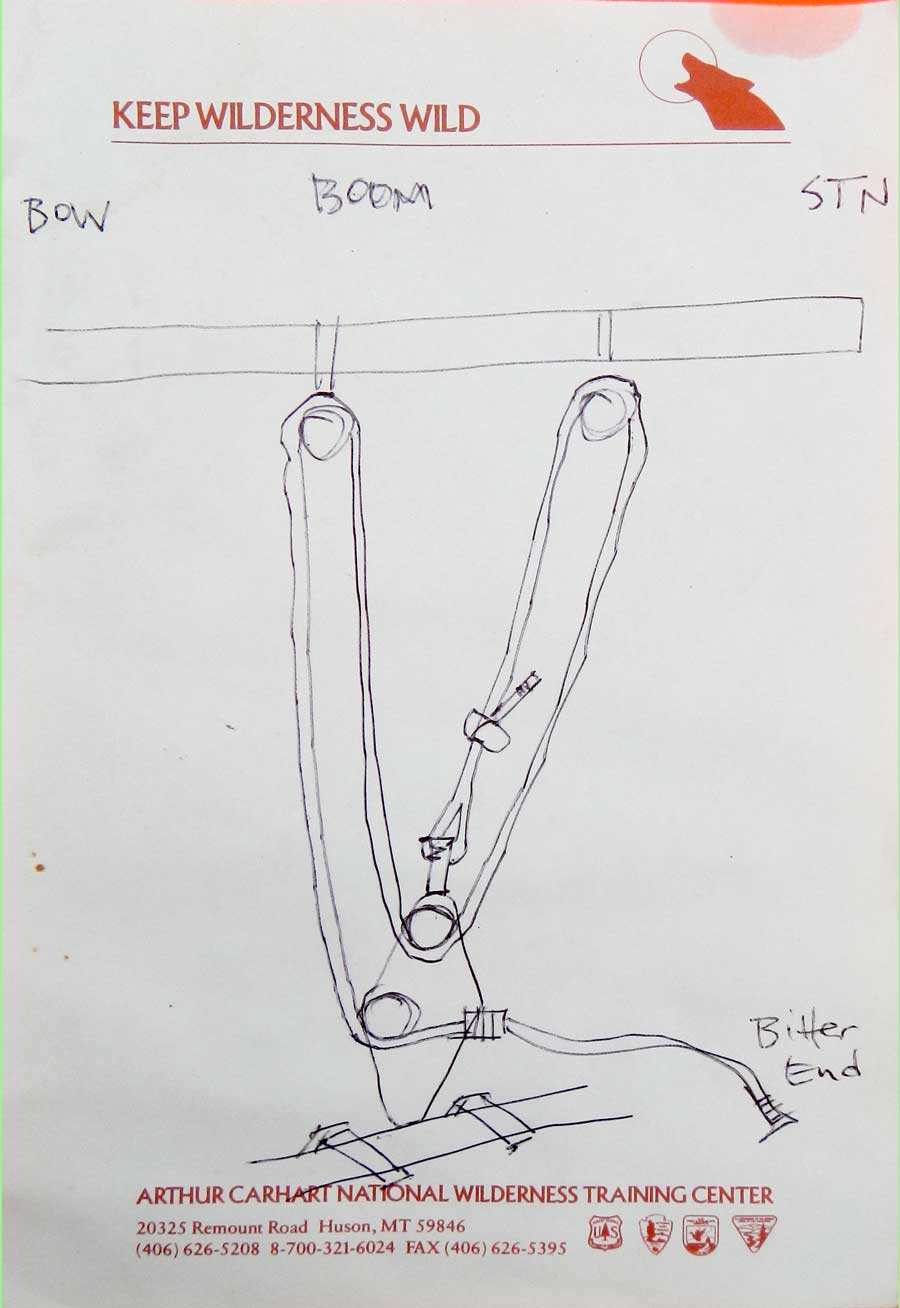
Sketch It First
October 1, 2018
Now on Newsstands
Join Our Mailing List
Get the best sailing news, boat project how-tos and more delivered to your inbox.
You have Successfully Subscribed!

Boat Insurance for Older Boats: Protecting Your Vessel and Investment
Published May 19, 2023 May 19, 2023
by Andrew Filar

In this comprehensive guide, we’ll explore the importance of boat insurance for older boats and provide valuable insights to help you navigate the process of getting older boats insured.
As boats age, they require extra care and attention to keep them in top shape. One crucial aspect of maintaining and safeguarding your older boat is securing the right insurance coverage.
Whether you’re concerned about protecting your investment or mitigating risks, this blog post has got you covered.
Understanding Boat Insurance
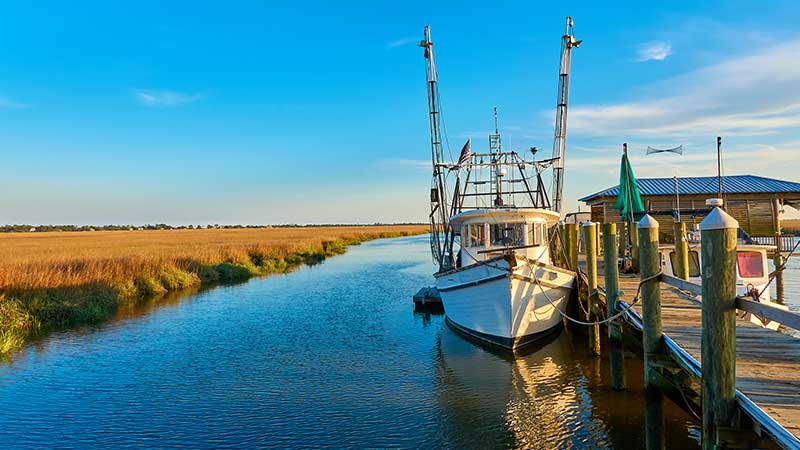
Boat insurance is a specialized form of coverage designed to protect boat owners from potential risks and damages.
Just like car insurance, boat coverage from a reputable insurance company provides financial protection against accidents, theft, vandalism, and liability claims.
For owners of older boats, especially classic boats, insurance coverage becomes even more critical due to the unique risks associated with aging vessels.
Types of Boat Insurance Policies
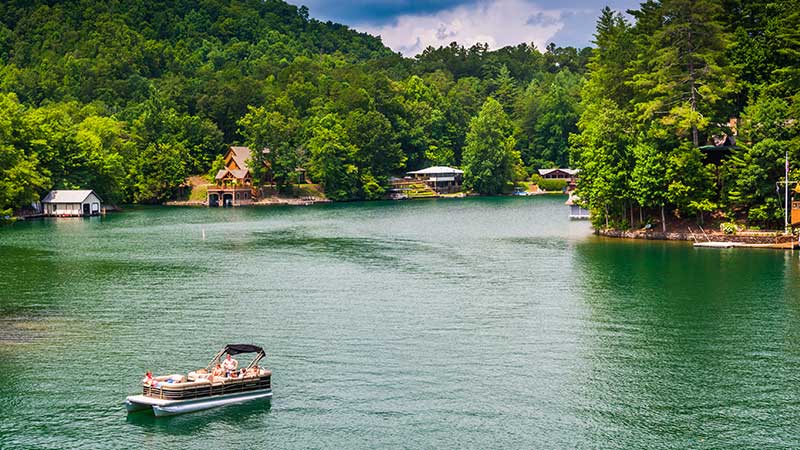
When it comes to insuring older boats, different policy options are available to suit various needs and budgets.
Actual Cash Value (ACV) Policies
ACV policies take into account the depreciated value of your boat.
In the event of a total loss, the insurance company pays you the current market value of the boat minus depreciation.
While this policy is more affordable, it may not cover the full replacement cost for older boats.
Agreed Value Policies
Agreed Value policies provide coverage based on insured value or an agreed-upon value between you and the insurer.
This type of policy guarantees a predetermined payout in case of a covered loss.
Agreed Value policies are often more suitable for older boats, as they offer greater financial protection.
Liability-only Policies
Liability-only policies provide coverage for damages caused to other boats or properties in case of an accident.
While these policies don’t cover damages to your own boat, they are a cost-effective option for boat owners who want to meet legal requirements without extensive coverage.
What Does Boat Insurance Cover?
Boat insurance provides coverage for a wide range of risks and liabilities associated with owning and operating a boat.
While specific coverage may vary depending on the insurance provider and policy, here are some common elements that boat insurance typically covers:
- Property Damage: Boat insurance typically includes coverage for physical damage to the boat itself. This coverage helps pay for repairs or replacement if your boat is damaged or destroyed due to accidents, collisions, fire, theft, vandalism, or natural disasters. It can cover the hull, equipment, machinery, and other permanently attached items on the boat.
- Liability Coverage: Liability coverage is an essential component of boat insurance. It protects you in case you cause bodily injury or property damage to someone else while operating your boat. This coverage helps pay for legal expenses, medical bills, property repairs, or settlements if you are held responsible for an accident or injury.
- Medical Payments: Boat insurance often includes coverage for medical expenses incurred by you or your passengers due to boating accidents or injuries. It can help cover hospital bills, doctor’s fees, and related medical expenses.
- Uninsured/Underinsured Boaters: This coverage protects you if you are involved in an accident with a boater who does not have insurance or has insufficient coverage to pay for the damages. It helps cover medical expenses, property damage, and other costs resulting from the accident.
- Personal Property: Boat insurance may provide coverage for personal belongings on the boat, such as fishing equipment, water sports gear, electronics, and personal effects. This coverage helps replace or repair these items if they are damaged, lost, or stolen while on board.
- Towing and Assistance: Boat insurance often includes coverage for emergency towing and assistance. If your boat becomes disabled or stranded on the water, this coverage can help cover the costs of towing, fuel delivery, on-water assistance, and similar services.
- Wreck Removal: In the event that your boat sinks or is severely damaged, boat insurance may cover the costs associated with removing the wreck from the water. Wreck removal coverage helps pay for salvage expenses, environmental cleanup, and related costs.
It’s important to note that the specific coverage and limits can vary between insurance providers and policies.
Some policies may offer additional optional coverage, such as coverage for fishing equipment, personal watercraft, or protection against pollution liability. Additionally, some insurers may offer discounts or incentives for safety features, completing boating safety courses, or bundling boat insurance with other policies.
When purchasing boat insurance, it’s essential to carefully review the terms and conditions of the policy, and understand the coverage limits, deductibles, and exclusions. Consider your specific needs, boating habits, and the value of your boat when selecting the appropriate coverage.
Consulting with an insurance professional who specializes in boat insurance can help you determine the right coverage options to protect your boat and provide peace of mind while on the water.
What is the difference between boat insurance and marine insurance?
Boat insurance provides coverage specifically for individual boats and personal watercraft, focusing on protecting the vessel itself and providing liability coverage.
Marine insurance, on the other hand, has a broader scope and covers a range of risks associated with commercial maritime operations, including vessels, cargo, liabilities, and other marine-related assets.
While boat insurance is typically geared towards personal use, marine insurance caters to commercial activities and offers more customization options.
Factors Affecting Insurance Premiums for Older Boats
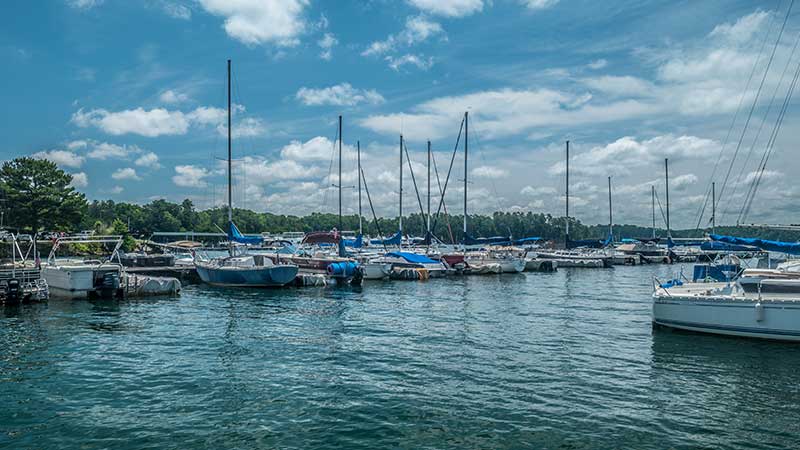
Several factors influence the cost of boat insurance premiums for older boats. Understanding these factors can help you make informed decisions and potentially reduce your insurance costs.
Age of the Boat
When it comes to boat insurance, the age of the boat is a significant factor that insurance companies consider when determining premiums.
Older boats, typically those over a certain age threshold, are generally associated with higher insurance premiums.
Why is that the case? Let’s delve into the reasons behind the impact of the boat’s age on insurance costs.
Increased Risk of Potential Issues
As boats age, they are more likely to experience mechanical failures, structural deterioration, and wear and tear.
Older boats may have outdated systems, aging components, or equipment that is more prone to malfunction.
These factors increase the risk of accidents or breakdowns, making insurers view older boats as higher-risk assets to insure.
Consequently, insurance companies adjust premiums to account for the potential claims and repairs associated with older boats.
Higher Repair Costs
Repairing an older boat can be more expensive compared to newer vessels.
Replacement parts for older models might be scarce or more challenging to obtain, resulting in increased costs.
Additionally, the expertise required to fix vintage or discontinued boat models can drive up repair expenses.
Insurance companies consider these higher repair costs when calculating premiums for older boats.
Depreciation
Like any other asset, boats depreciate over time.
The value of an older boat is lower than that of a new or recently manufactured vessel.
Insurance companies factor in the depreciated value of a boat when determining coverage limits and payout amounts in the event of a claim.
The lower value of an older boat influences the premium calculation since the insurer’s liability is reduced due to the diminished value of the insured asset.
Limited Availability of Replacement Parts
For older boats, finding specific replacement parts can be challenging, especially for models that are no longer in production.
This factor can cause delays and complications during repairs, increasing the time and cost involved in fixing the boat.
Insurance companies consider the potential difficulties in sourcing parts for older boats when assessing risk and setting premiums.
Historical Data and Claim Patterns
Insurance companies rely on historical data and claim patterns to assess risk and determine premiums.
If older boats of a particular make or model have a higher frequency of claims or a history of costly repairs, insurance providers may adjust premiums accordingly.
This data-driven approach helps insurance companies manage their risks and maintain financial stability.
Despite the higher premiums associated with insuring older boats, it’s important to note that adequate insurance coverage for your aging vessel is essential.
While the cost may be a concern, it is a worthwhile investment to protect your boat and mitigate potential financial burdens resulting from accidents, damages, or liability claims.
Additionally, by properly maintaining your older boat, documenting repairs and upgrades, and implementing safety measures, you may be able to demonstrate to insurance providers that your vessel is well-cared for, potentially resulting in more favorable premiums.
Condition and Maintenance
The condition and maintenance of an older boat play a significant role in determining insurance premiums.
Insurance providers take into account the overall condition and upkeep of the boat when assessing risk and calculating the cost of coverage.
Let’s explore how the condition and maintenance of an older boat can impact insurance premiums.
Reduced Risk of Potential Issues
Proper maintenance and regular inspections are vital for keeping an older boat in good condition.
When a boat is well-maintained, the risk of mechanical failures, structural problems, and other issues is significantly reduced.
Insurance companies recognize that boats in good condition are less likely to experience accidents or breakdowns, leading to fewer claims.
As a result, they may offer lower insurance premiums to boat owners who can demonstrate a track record of proper maintenance and upkeep.
Increased Reliability and Safety
A well-maintained older boat is generally safer to operate on the water.
By following manufacturer-recommended maintenance schedules, addressing repairs promptly, and ensuring that safety features are functioning correctly, boat owners can minimize the risk of accidents and related insurance claims.
Insurance providers consider the safety features and overall reliability of the boat when determining premiums.
Boats with a strong maintenance history and robust safety measures in place may qualify for lower insurance rates.
Documentation of Service Records
Keeping detailed service records for your older boat is crucial.
Service records provide a clear picture of the maintenance and repairs performed on the vessel over time.
When requesting insurance quotes or submitting documentation to insurers, these service records serve as evidence of the boat’s maintenance history and its current condition.
Insurers view well-documented service records as a positive sign that the owner has taken care of the boat, which can result in more favorable premiums.
Impact on Resale Value
Regular maintenance and proper care can help preserve the value of an older boat.
Insurance providers recognize that a well-maintained boat holds its value better and is less likely to suffer from significant depreciation.
This consideration may influence the insurance premium calculation, as the insurer has a vested interest in protecting the value of the insured asset.
By investing in maintenance and demonstrating a commitment to preserving the boat’s condition, owners may be eligible for lower premiums.
Discounts and Incentives
Insurance companies often provide discounts or incentives for boat owners who maintain their vessels properly.
These discounts may vary between insurers but can include benefits for safety features, such as fire extinguishers, life jackets, and navigational aids.
Some insurers may also offer discounts for completing boating safety courses or having the boat inspected by a certified marine surveyor.
Taking advantage of these opportunities can contribute to reducing insurance premiums for older boats.
When seeking insurance coverage for an older boat, it’s essential to emphasize its good condition and maintenance history.
By providing detailed documentation of service records, demonstrating compliance with recommended maintenance schedules, and highlighting any upgrades or improvements made to the boat, you can present a compelling case to insurers and potentially secure lower insurance premiums.
Remember, regular maintenance and inspections not only benefit your insurance premiums but also ensure the safety and longevity of your boat.
By prioritizing maintenance and investing in the proper care of your older vessel, you not only increase its value but also enhance your overall boating experience.
Type and Usage
When it comes to boat insurance, the type of boat and its intended usage are crucial factors that insurance companies consider when determining premiums.
Different types of boats and their specific uses pose varying levels of risk, which in turn affects insurance rates.
Let’s explore how the type and usage of a boat can impact insurance premiums.
The size of the boat is an important consideration for insurance companies.
Larger boats generally have higher insurance premiums due to their higher value and the potential for more significant damages in the event of an accident.
The size of the boat also affects its stability and handling characteristics, which can impact the risk of accidents.
Smaller boats, on the other hand, may be associated with lower insurance premiums as they are typically less expensive to repair or replace.
The horsepower of the boat’s engine is another factor that influences insurance rates.
Boats with higher horsepower engines are generally faster and may be more prone to accidents or incidents on the water.
Insurers take into account the increased risk associated with higher-powered boats when calculating premiums.
Consequently, boats with lower horsepower engines may have lower insurance premiums due to their perceived lower risk.
Navigational Areas
The intended usage and navigational areas of a boat can also impact insurance premiums.
Some boats are designed for specific types of water bodies, such as inland waters, coastal areas, or offshore use.
Insurance providers consider the navigational areas in which the boat will be operated.
For example, navigating in rougher waters or areas prone to storms or hurricanes may increase the risk profile and result in higher premiums.
Boats used exclusively on inland lakes or calm waters may be associated with lower insurance premiums.
Commercial vs. Personal Use
The purpose of the boat, whether it is used for commercial or personal use, can also affect insurance rates.
Commercial boats, such as charter boats or those used for commercial fishing or water sports activities, often carry higher insurance premiums due to the increased liability exposure.
Insurance providers assess the risks associated with the specific commercial operations and the potential for third-party claims when determining premiums.
Specialized Boats
Certain types of boats, such as high-performance boats, sailboats, or houseboats, may have unique insurance requirements and risk profiles.
High-performance boats, for example, may require additional coverage due to their speed capabilities and increased risk of accidents.
Sailboats may have specific coverage needs related to rigging, sails, or equipment.
Insurance providers take into account the specialized characteristics and usage of these boats when calculating premiums.
It’s important to provide accurate information about the type of boat and its intended usage when seeking insurance coverage. Be prepared to answer questions about the boat’s size, engine horsepower, and the locations where you plan to operate it.
Providing precise details ensures that you receive the appropriate coverage and that your insurance premiums are accurately calculated.
Additionally, it’s worth noting that some insurance providers offer specialized boat coverage with options tailored to specific types of boats or usage scenarios. These specialized policies may provide additional benefits or coverage enhancements that cater to the unique needs of the boat.
Consulting with insurance professionals who understand the intricacies of different boat types and usages can help you find the most suitable coverage at competitive rates.
Geographic Location
The geographic location where a boat is primarily kept and operated is a significant factor in determining insurance premiums.
Insurance companies assess the risk associated with specific regions, taking into account factors such as regional weather patterns, susceptibility to storms and hurricanes, and local crime rates.
Let’s explore how the geographic location of a boat can impact insurance premiums.
Storm and Hurricane Prone Areas
Boats located in regions prone to storms, hurricanes, or other severe weather conditions face a higher risk of damage.
Insurance providers consider the likelihood of weather-related incidents, such as high winds, heavy rainfall, or storm surges, when calculating premiums.
Areas along coastlines or in regions known for frequent tropical storms or hurricanes may have higher insurance premiums due to the increased risk of potential claims for boat damage or loss.
Theft and Vandalism Rates
Local crime rates and the prevalence of boat theft and vandalism in a particular area can impact insurance premiums.
Boats located in regions with higher rates of theft or vandalism are more likely to incur losses, leading to increased insurance costs.
Insurance companies take into account the historical data and crime rates of specific locations to determine the risk of theft or malicious damage to boats.
Owners of boats kept in areas with lower crime rates may enjoy more affordable insurance premiums.
Waterway Characteristics
The characteristics of the waterways in a particular region can also influence insurance rates.
Certain areas may have challenging navigational conditions, such as narrow channels, strong currents, or high traffic density, increasing the risk of accidents or collisions.
Insurance providers consider these factors when assessing the risk profile of boats operating in those waterways.
Boats operating in safer, less congested waterways may be associated with lower insurance premiums compared to those operating in more challenging or crowded areas.

Availability of Repair Facilities
The availability of qualified repair facilities in a geographic area can impact insurance premiums.
In areas with limited access to repair services or specialized boatyards, the cost of repairs or parts replacement may be higher.
Insurance companies consider these factors as they influence the potential expenses associated with boat repairs.
Boats located in regions with well-established and accessible repair facilities may have more competitive insurance rates.
Local Regulations and Requirements
Different regions may have specific insurance regulations and requirements for boats.
For example, certain areas may mandate additional coverage options, such as full liability insurance or coverage for pollution or environmental damage.
Insurance providers consider these local regulations when determining the coverage options and associated premiums for boats in those areas.
When seeking insurance coverage for your boat, it’s important to provide accurate information about the geographic location where the boat will be primarily kept and operated.
This allows insurance providers to assess the risk factors associated with that location and provide appropriate coverage options and premiums.
It’s worth noting that while insurance premiums may be higher in certain geographic areas, adequate insurance coverage is essential to protect your boat from potential risks and liabilities.
By selecting coverage that aligns with the specific risks of your location and maintaining proper security measures, such as boat alarms or GPS tracking systems, you can mitigate some of the risks and potentially qualify for discounts or reduced premiums.
Consulting with insurance professionals who have expertise in your specific geographic area can provide valuable insights into the regional risk factors and coverage options available.
By understanding the impact of your boat’s location on insurance premiums, you can make informed decisions to safeguard your investment and enjoy worry-free boating experiences.
Tips for Finding Affordable Boat Insurance for Older Boats
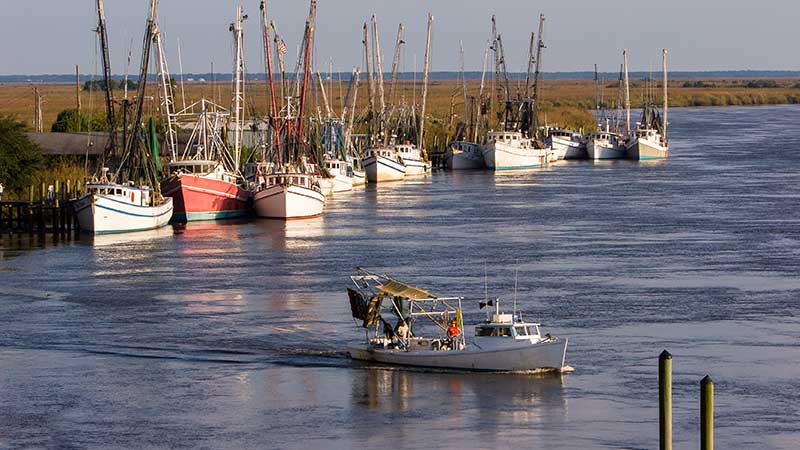
Securing affordable insurance coverage for your older boat is possible with these practical tips:
Research Insurance Providers
Look for insurance companies that specialize in insuring older boats. They understand the unique needs and challenges associated with aging vessels.
Compare Quotes and Coverage Options
Obtain quotes from multiple insurance providers to compare rates and coverage options. Be sure to assess the terms and conditions of each policy to ensure they meet your specific requirements.
Evaluate Deductibles and Coverage Limits
Consider your budget and risk tolerance when selecting deductibles and coverage limits.
A higher deductible may lower your premium but also means you’ll have to pay more out of pocket in the event of a claim.
Assess your boat’s value and determine the appropriate coverage limits to strike a balance between affordability and adequate protection.
Consider Bundling Options or Loyalty Discounts
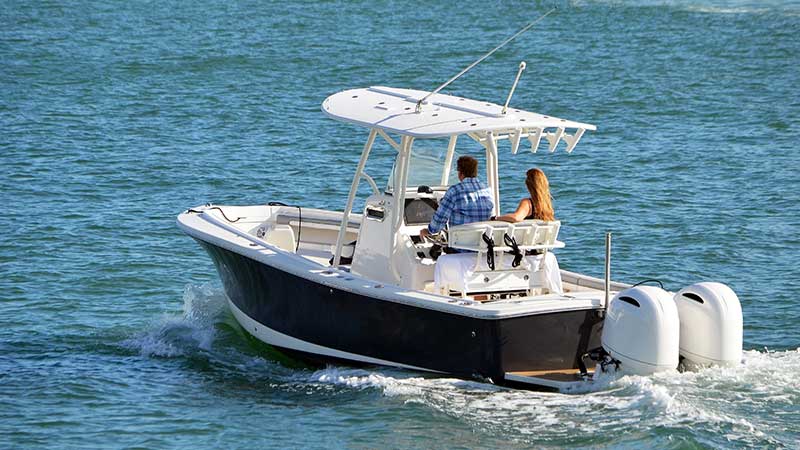
If you have other insurance policies, such as auto or home insurance, check if bundling them with your boat insurance can lead to discounts. Additionally, inquire about loyalty discounts for long-term policyholders.
Important Coverage Considerations for Older Boats
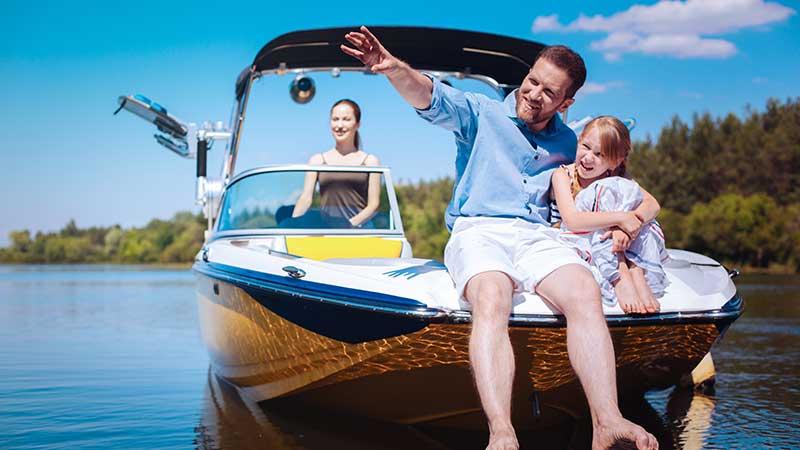
When insuring your older boat, certain coverage options should be prioritized to ensure comprehensive protection:
Hull Coverage for Physical Damages
This coverage reimburses repair or replacement costs for damages caused by accidents, storms, or other covered perils. Opt for a policy that covers the agreed or appraised value of your boat to ensure adequate compensation.
Protection Against Liability Claims
Liability coverage safeguards you against legal and medical payments and financial obligations arising from accidents where you are at fault. Ensure your policy includes sufficient liability coverage limits to protect your assets in case of a lawsuit.
Coverage for Salvage and Wreck Removal
In the unfortunate event of a total loss, salvage and wreck removal costs can be substantial. Confirm with your insurance company that your policy includes coverage for these expenses to avoid unexpected financial burdens.
Supplementary Coverage for Additional Risks
Depending on your boat’s location and the specific risks it may face, consider additional coverage options. For example, if you live in a hurricane-prone area, adding coverage for hurricane-related damages can provide invaluable peace of mind.
Maintaining and Insuring Older Boats
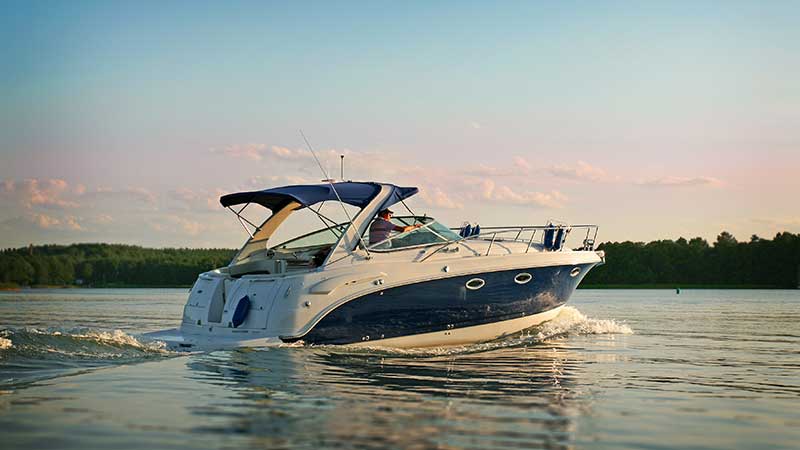
To ensure the best insurance coverage for your older boat or classic boat, it’s essential to prioritize proper maintenance and documentation:
Regular Maintenance and Inspections
Stay on top of maintenance tasks, including routine inspections, engine servicing, and addressing any issues promptly. A well-maintained boat is not only safer but also more likely to qualify for better insurance rates.
Documenting Repairs, Upgrades, and Improvements
Keep detailed records of all repairs, upgrades, and improvements made to your boat. This documentation can help demonstrate the boat’s improved condition and potentially lead to lower insurance premiums.
Impact of Boat Modifications on Insurance Coverage
Before making any significant modifications to your older boat, consult with your insurance provider. Certain modifications may impact your coverage or require policy adjustments.
Potential Discounts for Safety Features and Anti-Theft Devices
Installing safety features such as fire extinguishers, smoke detectors, and anti-theft devices like alarms or GPS tracking systems may qualify you for insurance discounts. Inquire with your insurer about available discounts for these enhancements.
Frequently Asked Questions about Boat Insurance for Older Boats
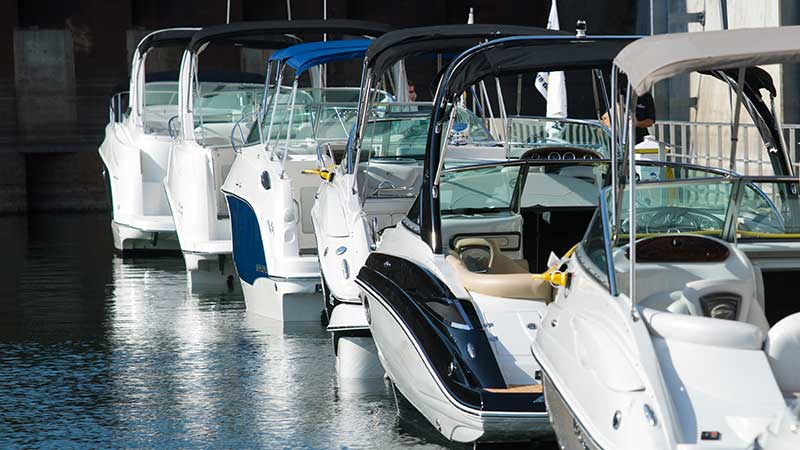
Can I insure a boat that is more than 20 years old? Yes, many insurance companies provide coverage for boats of various ages, including those older than 20 years. However, the availability of coverage and the policy options may vary among insurers.
What coverage options are available for older boats?
Older boats can be insured with options such as Actual Cash Value (ACV) policies, Agreed Value policies, or liability-only policies. Assess your boat’s value, your budget, and the level of coverage you need to select the most suitable policy.
How can I find the right insurance provider for my older boat?
Research insurance companies specializing in boat insurance and inquire about their experience in insuring older boats. Request quotes from multiple providers and carefully review their coverage options, customer reviews, and reputation in the industry.
Can I make changes to my insurance policy as my boat ages?
Yes, you can make changes to your insurance policy as your boat ages.
Whether you need to adjust coverage limits, add endorsements, or explore new policies, contact your insurance provider to discuss the possible options.
As your boat ages, your insurance needs may change, so it’s essential to regularly review your policy and make necessary updates.
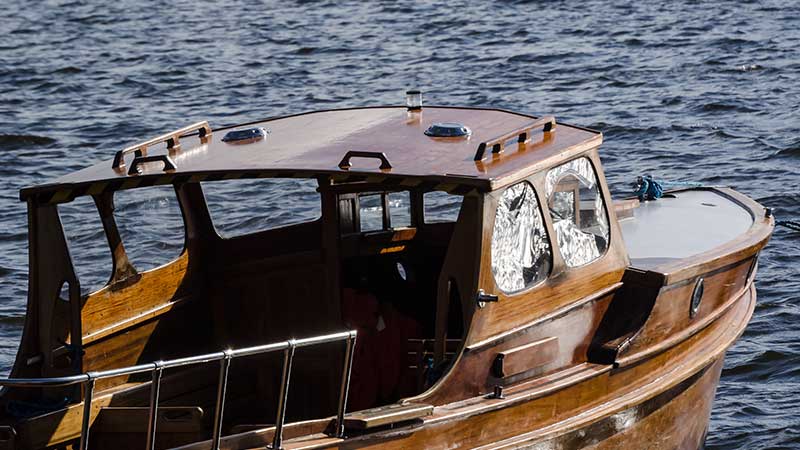
Boat insurance for older boats is a crucial investment that protects both your vessel and your financial well-being.
Understanding the risks associated with older boats and selecting the right insurance policy can provide peace of mind while enjoying your time on the water.
Remember to consider factors such as age, condition, usage, and location when determining the appropriate coverage and premiums.
By following the tips provided in this guide and maintaining your boat diligently, you can find affordable insurance coverage that safeguards your older boat against potential risks.
So, don’t delay—secure the protection your boat deserves and embark on worry-free adventures on the open seas.
Remember, each insurance company may have different policies and offerings, so it’s important to do your research, compare quotes, and consult with professionals in the field to make an informed decision.
With the right boat insurance, you can navigate the waters with confidence, knowing that your older boat is well-protected.
- Recent Posts
- Insurance Claims: When to Claim vs. Not Claim - December 12, 2023
- Renters Insurance in Georgia: The Complete Guide to Securing Your Space - October 30, 2023
- Best Motorcycle Insurance in Georgia (Guide) - October 9, 2023
Leave a Comment Cancel reply
Save my name, email, and website in this browser for the next time I comment.
Get a Quote
We'll call you at a time convenient to you.

The Policy Pal
Older Boat Insurance: Essential Coverage for Your Vessel
Whether you’re a seasoned boater or just starting your maritime adventures, one thing is certain – protecting your boat with insurance is vital. However, if you own an older boat, there are specific considerations and factors that can affect your boat insurance coverage and premiums. In this article, we will delve into the intricacies of boat insurance for older boats and provide you with the information you need to make informed decisions. So, hop aboard as we navigate through the world of boat insurance for older boats.
Introduction
Before we dive into the specifics, let’s take a moment to understand boat insurance and its significance. Boat insurance is a specialized type of coverage designed to protect boat owners from financial losses associated with various risks and liabilities. It offers peace of mind, allowing you to enjoy your time on the water without worrying about potential mishaps or accidents.
Understanding Boat Insurance
Boat insurance policies typically provide coverage for physical damage to your boat, liability for bodily injury or property damage caused by your boat, and even medical payments for injuries sustained by you or your passengers. It’s important to note that boat insurance is not a one-size-fits-all solution. The coverage you need may vary based on factors such as the type of boat, its age, usage, and your location.
Boat Insurance for Older Boats – Why It Matters
If you own an older boat, insurance becomes even more crucial. As boats age, their value depreciates, making them more susceptible to damage. Older boats may also require more maintenance, increasing the risk of potential issues. Additionally, it’s important to consider that older boats might not have the same safety features and technologies as newer models, which could impact the overall risk assessment by insurance providers.
Factors Affecting Boat Insurance Premiums
Several factors influence boat insurance premiums for older boats. These include the age, make, and model of the boat, as well as its overall condition. Insurance companies will also consider the boat’s usage, storage location, and the navigational areas you plan to explore. Additionally, your boating experience, claims history, and even your credit score may be taken into account. It’s essential to disclose accurate information to insurers to ensure you receive the appropriate coverage at a fair premium.
Choosing the Right Coverage for Older Boats
When it comes to insuring older boats, selecting the right coverage is paramount. It’s advisable to opt for comprehensive coverage that includes protection against physical damage, liability, and medical payments. However, you should carefully assess your boat’s value and the potential risks involved to determine the appropriate coverage limits. Collaborating with an experienced boat insurance agent can prove invaluable in tailoring a policy that meets your specific needs.
Tips for Reducing Boat Insurance Costs
While boat insurance is necessary, there are ways to manage the costs associated with insuring older boats. Here are a few tips to help you reduce your boat insurance premiums:
- Complete a boating safety course: Many insurance providers offer discounts to boaters who have completed an approved safety course.
- Install safety features: Enhancing your boat’s safety measures, such as adding fire extinguishers, bilge alarms, or theft deterrent systems, can lead to premium discounts.
- Bundle discounts: Consider bundling your boat insurance with other policies, such as home or auto insurance, to potentially qualify for multi-policy discounts.
- I ncrease deductibles: Opting for higher deductibles can lower your insurance premiums. However, ensure you can comfortably afford the deductible amount in case of a claim.
- Maintain a good boating record: Being a responsible boater with a clean claims history can result in lower premiums over time.
Maintaining and Inspecting Older Boats
Proper maintenance and regular inspections are vital for older boats. Not only does this ensure their seaworthiness and safety but also plays a significant role in insurance coverage. Insurance providers may require proof of regular maintenance and inspections to assess the condition of your boat and determine the appropriate coverage. Additionally, maintaining up-to-date records can help expedite the claims process in the event of damage or loss.
Common Claims for Older Boats
As boats age, certain types of claims become more common. Understanding these potential risks can help you prepare and select the right coverage. Some common claims associated with older boats include:
- Hull damage due to wear and tear or corrosion
- Machinery breakdowns and engine failures
- Electrical system failures
- Water damage and leaks
- Theft or vandalism
By considering these risks and discussing them with your insurance provider, you can ensure your boat insurance policy adequately covers potential issues specific to older boats.
Expert Advice on Boat Insurance for Older Boats
To gain further insight into boat insurance for older boats, we reached out to industry experts. John Smith, a seasoned boat insurance agent with over 20 years of experience, suggests the following:
“Owners of older boats should prioritize regular maintenance and inspections. This not only ensures the safety of the vessel but can also lead to better insurance rates. It’s crucial to work with an agent who specializes in boat insurance and understands the unique considerations of older boats.”
By seeking guidance from knowledgeable professionals, you can navigate the complexities of boat insurance and make informed decisions that protect your investment.
Insuring older boats requires careful consideration and tailored coverage. By understanding the unique factors affecting boat insurance for older boats, choosing appropriate coverage, and implementing preventive maintenance measures, you can safeguard your investment and enjoy worry-free boating experiences. Remember to disclose accurate information to insurance providers, explore cost-saving options, and collaborate with experienced agents who specialize in boat insurance. By following these guidelines and staying proactive, you can navigate the seas with confidence, knowing that your older boat is protected.
Frequently Asked Questions
Is boat insurance mandatory for older boats.
Boat insurance is not legally required for all boats, but it’s highly recommended, especially for older boats. Insurance provides financial protection against potential liabilities and damages, offering peace of mind while enjoying your time on the water.
How is the value of an older boat determined for insurance purposes?
The value of an older boat is typically determined by considering its age, condition, market value, and any upgrades or modifications. Insurance providers may rely on appraisal reports, surveys, or market research to assess the value accurately.
Can I insure my older boat for an agreed value?
Some insurance companies offer an agreed value policy, which allows you to establish a pre-agreed value for your boat. This can be beneficial for owners of older boats, as it ensures a fair payout in the event of a total loss.
What if my older boat doesn’t meet the safety requirements set by insurance providers?
If your older boat doesn’t meet certain safety requirements, such as lacking updated safety equipment or technology, insurance providers may either deny coverage or offer it at higher premiums. It’s important to address any safety concerns and make necessary upgrades to ensure insurability.
Can I modify my older boat to reduce insurance premiums?
Certain modifications, such as installing safety features or anti-theft devices, may help reduce insurance premiums for older boats. However, it’s crucial to consult with your insurance provider before making any modifications to ensure they will have the desired effect on your premiums.
Share this:
- Click to share on Twitter (Opens in new window)
- Click to share on Facebook (Opens in new window)
- Click to share on Pinterest (Opens in new window)
- Click to share on WhatsApp (Opens in new window)
Similar Posts
Umbrella insurance workers’ comp coverage | explained.
Learn if umbrella insurance provides coverage for workers’ compensation claims. Understand the benefits and limitations of this type of insurance.
Compulsory Workers Compensation Insurance: What You Need to Know
Learn about the importance of compulsory workers compensation insurance and how it protects your employees. Find out the requirements and benefits. Get informed now!
Disability Insurance Long-Term Care: Coverage Explained
Discover how disability insurance covers long term care expenses. Learn about coverage options and benefits. Find the right plan for your needs.
Camera Speeding Ticket Insurance: Impact on Insurance Rates
Discover how camera speeding tickets can affect your insurance rates and make an informed decision. Learn more about camera speeding ticket insurance implications.
Reinsurance vs. Insurance: What’s the Difference?
Discover the difference between reinsurance and insurance. Learn about key distinctions, coverage variations, and more.
Does Business Insurance Cover Vehicles? A Comprehensive Guide
Discover whether business insurance covers vehicles and how it can protect your assets. Get insights into the various aspects of this crucial coverage.
Discover more from The Policy Pal
Subscribe now to keep reading and get access to the full archive.
Type your email…
Continue reading

IMAGES
COMMENTS
Jan 9, 2023 Insurance: Can You Get It? Can you insure a 30-year-old boat? The answer is yes, but it’s a pain. Here are tips on how to minimize that. Maybe some of you read last month’s column on completing the Great Loop of America, and maybe now you’re thinking about doing it yourself.
Boat owners—especially those with vessels over 40 years old—are feeling the effects. The great insurance reckoning hit sailors like an accidental jibe, leaving us to make peace with a grim reality: Insurance is hard to find and harder to keep.
Classic Insurance. If you own an original Chris-Craft, Century, Gar Wood, or a fiberglass boat older than 1990 with a unique design or limited production, protect your boat with the best coverage available. Get a quote. Learn more.
How can I find the right insurance provider for my older boat? Research insurance companies specializing in boat insurance and inquire about their experience in insuring older boats. Request quotes from multiple providers and carefully review their coverage options, customer reviews, and reputation in the industry.
Boat Insurance for Older Boats – Why It Matters. If you own an older boat, insurance becomes even more crucial. As boats age, their value depreciates, making them more susceptible to damage. Older boats may also require more maintenance, increasing the risk of potential issues. Additionally, it’s important to consider that older boats might ...